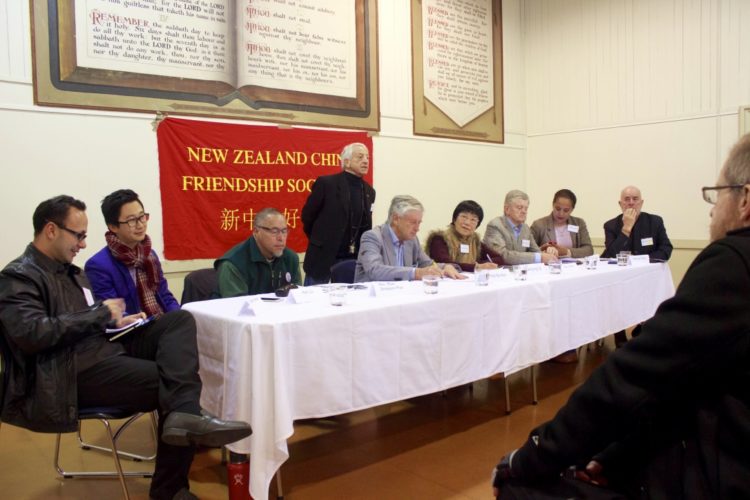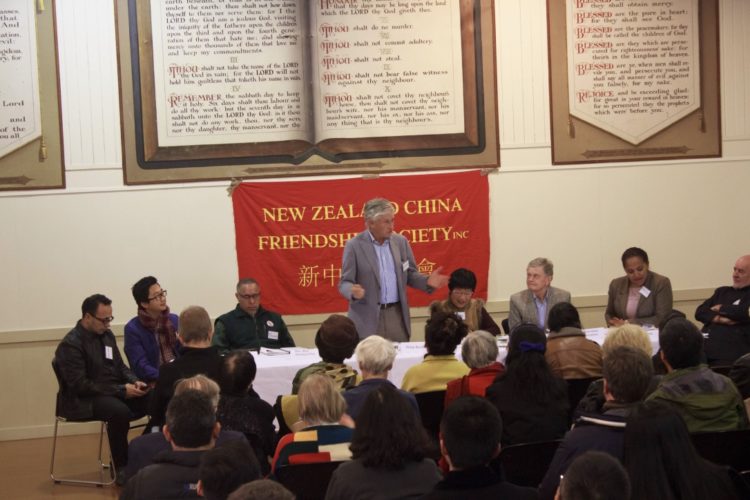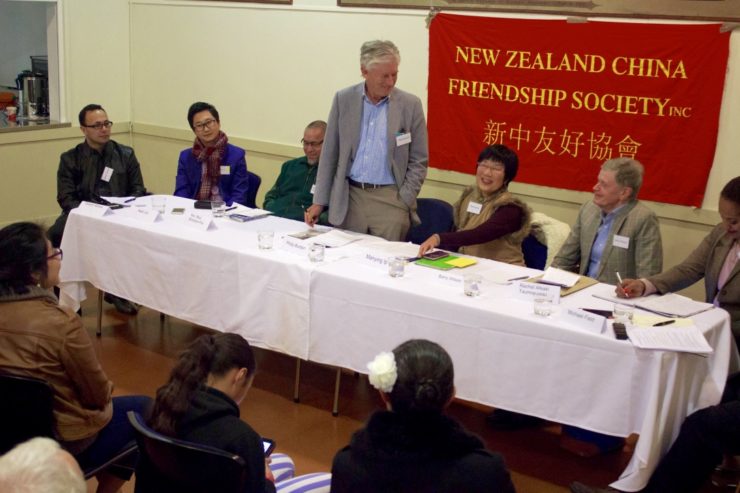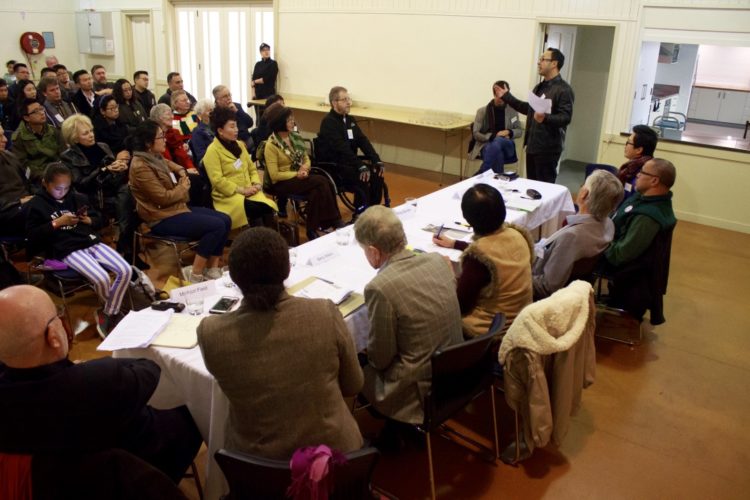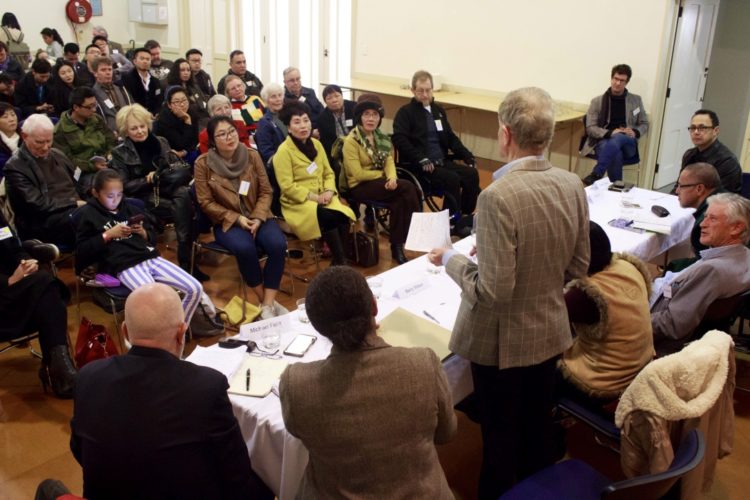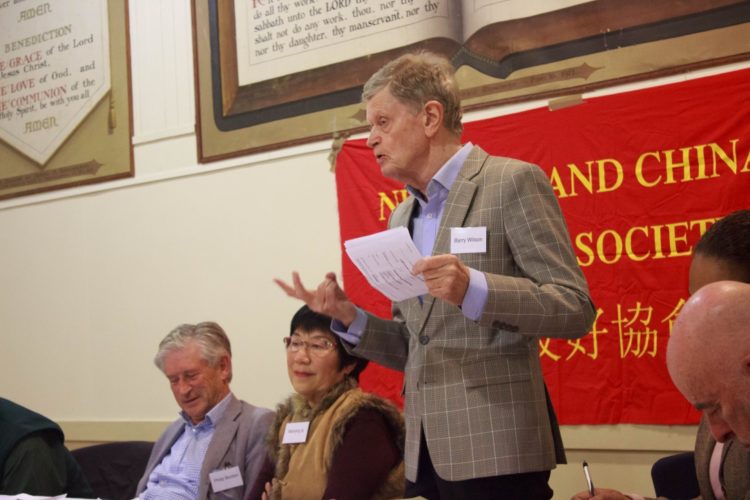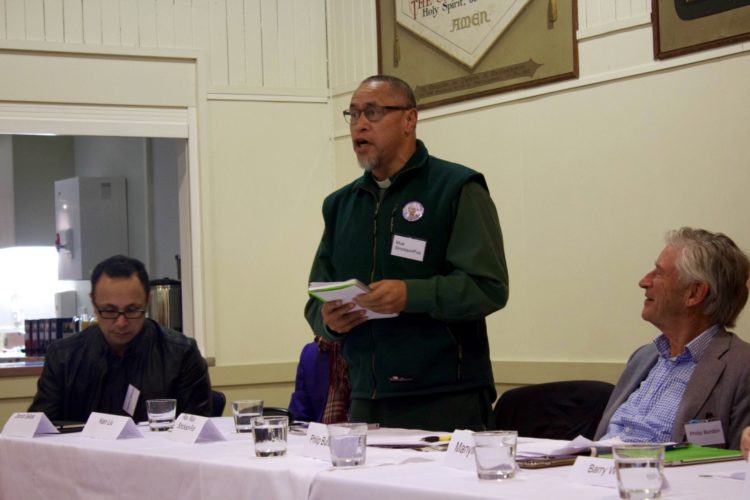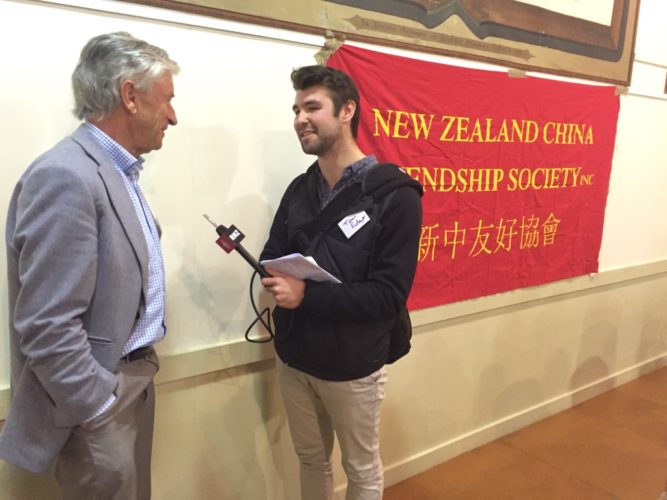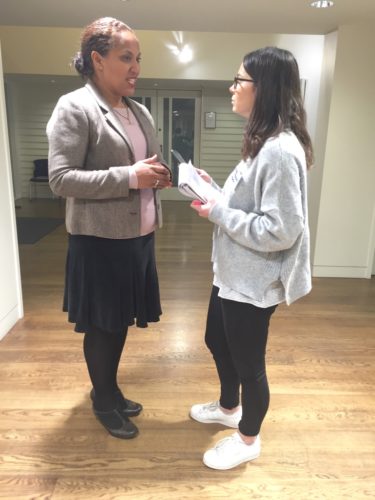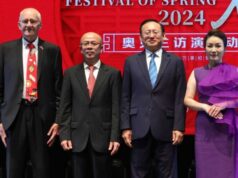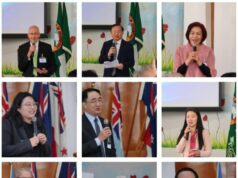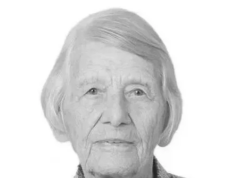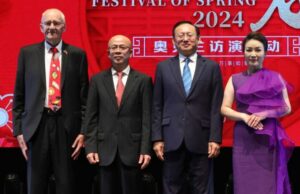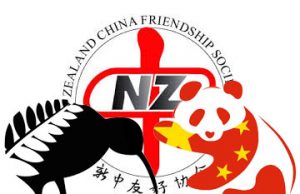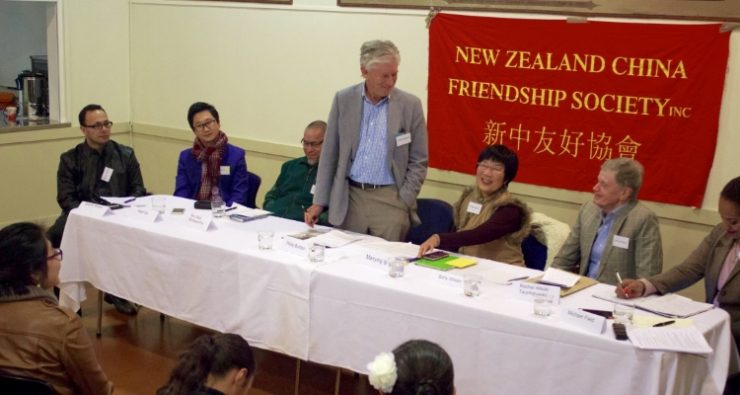
The Auckland Branch of the New Zealand China Friendship Society took Patron Philip Burdon at his word when we hosted a rousing debate about a topic he had suggested at the 2016 NZCFS National Conference. He was more than ready to accept the challenge of adjudicating an event that provoked more interest than even he had imagined.
The following report is from one of the particpants, seasoned Pacific journalist and writer Michael Field. Photos by Shaun Shadbolt.
Call it karma, call it yuanfen, whatever it was, when the Auckland Branch of New Zealand China Friendship Society held a debate this month, it was strikingly timely.
Society patron Phillip Burdon had suggested to their National Conference that it was time for the society to look beyond New Zealand, to China’s relationship with the Pacific.
With China increasingly involved among the 14 independent nations of the Pacific, it seemed a good idea to hold a debate around what was happening.
A moot was decided upon: ‘That China’s increasing engagement with the Pacific improves the prospects for Peace in our Region’. The venue was Auckland’s Mount Eden Village Centre and the date, Sunday July 17. This was where coincidence came into play; on the morning of the debate the New Zealand media launched a high profile story around apparent tensions between China and New Zealand, mostly involving trade policy. And several days earlier the South China Seas decision from The Hague was released.
It made the debate for later that evening strikingly appropriate. Radio New Zealand and Fairfax sent reporters to cover the debate and despite it being a cold wet night, around 60 people showed up to hear the panel.
The affirmative side was led by the University of Auckland’s Head of Pacific Studies Damon Salesa, the first Pacific Islander to have held a Rhodes Scholarship. He was supported by the colourful Samoan church minister Reverend Mua Strickson-Pua and young Chinese migrant Ken Liu.
The negative side had a more venerable look’ other than the lively Tongan community leader Rachel Afeaki Taumoepeau. Veteran Auckland human rights lawyer Barry Wilson led the negative team. Perhaps because I have spent decades as a reporter in the South Pacific, I was roped in as the third member of the negative team.
Adjudicating the team and trying to spot the winning side were the University of Auckland’s Professor Manying Ip and Phillip Burdon. Salesa led the way, arguing that China had a strong place in the region and was making a positive contribution. Strickson-Pua provided an amusing and warm account of how Chinese were part of the Pacific while Liu said Chinese did not want to dominate the Pacific, they wanted to be accepted and part of it.
Wilson, true to the style of debating, was strong in his criticism of China, particularly over the South China Sea issue. Afeaki Taumoepeau expressed concern that growing tensions between Chinese and Pacific communities could lead to unrest.
I recounted my time living in Samoa in the 1970s and the way a Chinese acrobatic troupe had caused a sensation in Samoa in its day. I also stressed that we have to appreciate that when discussing China in the Pacific, we have to separate out that involvement which is government and state to Pacific governments and state, and the many individuals from China who acted from personal motives, not state motives.
The debate was conducted with great humour and prompted many questions at the end.
Manying Ip and Phillip Burdon declared the debate a draw, and to the protest of both affirmative and negative sides, put it to a crowd decision. That too proved to be a draw.
